15 July 2025
CAS Physical Computing Competition Review
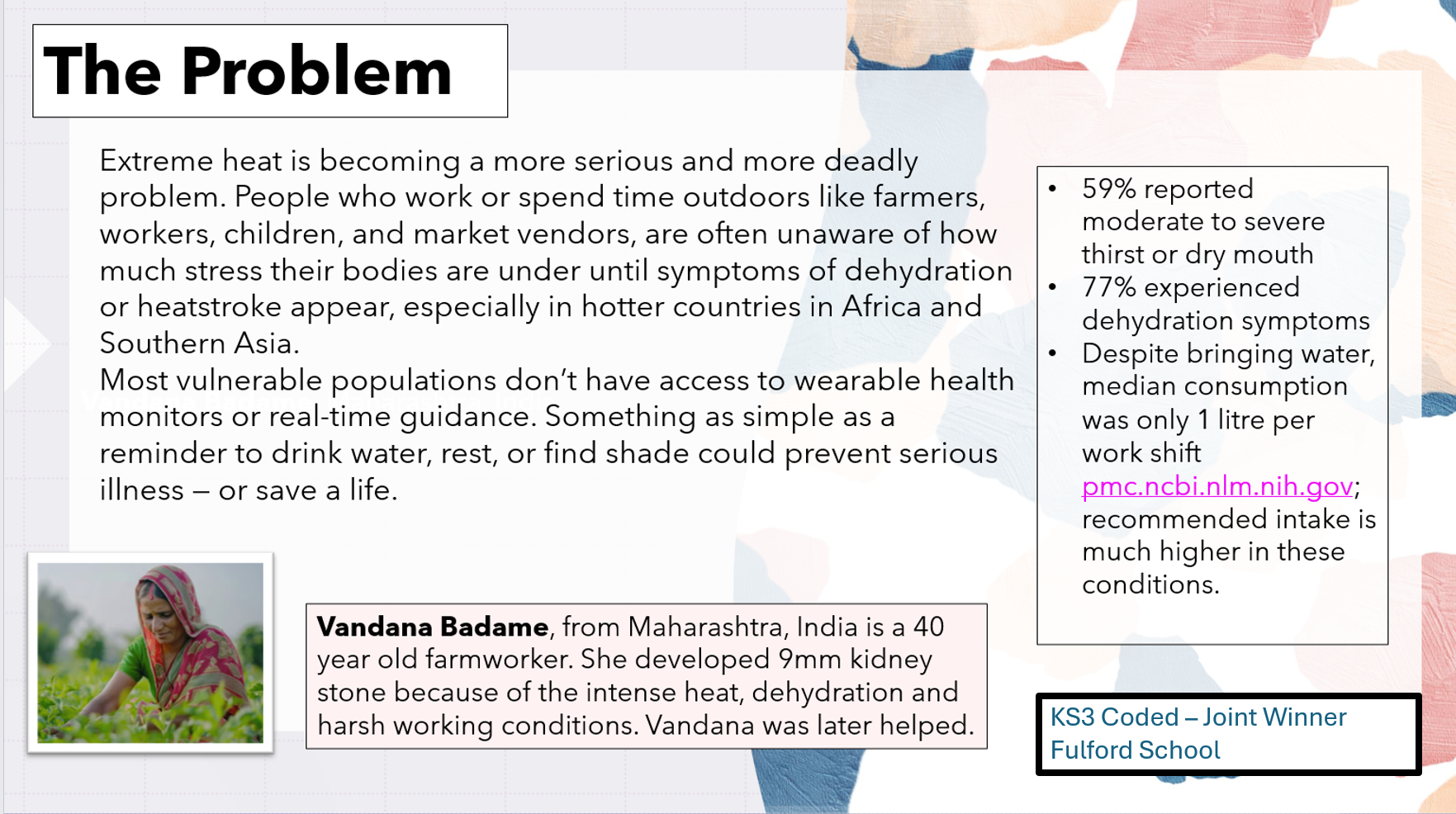
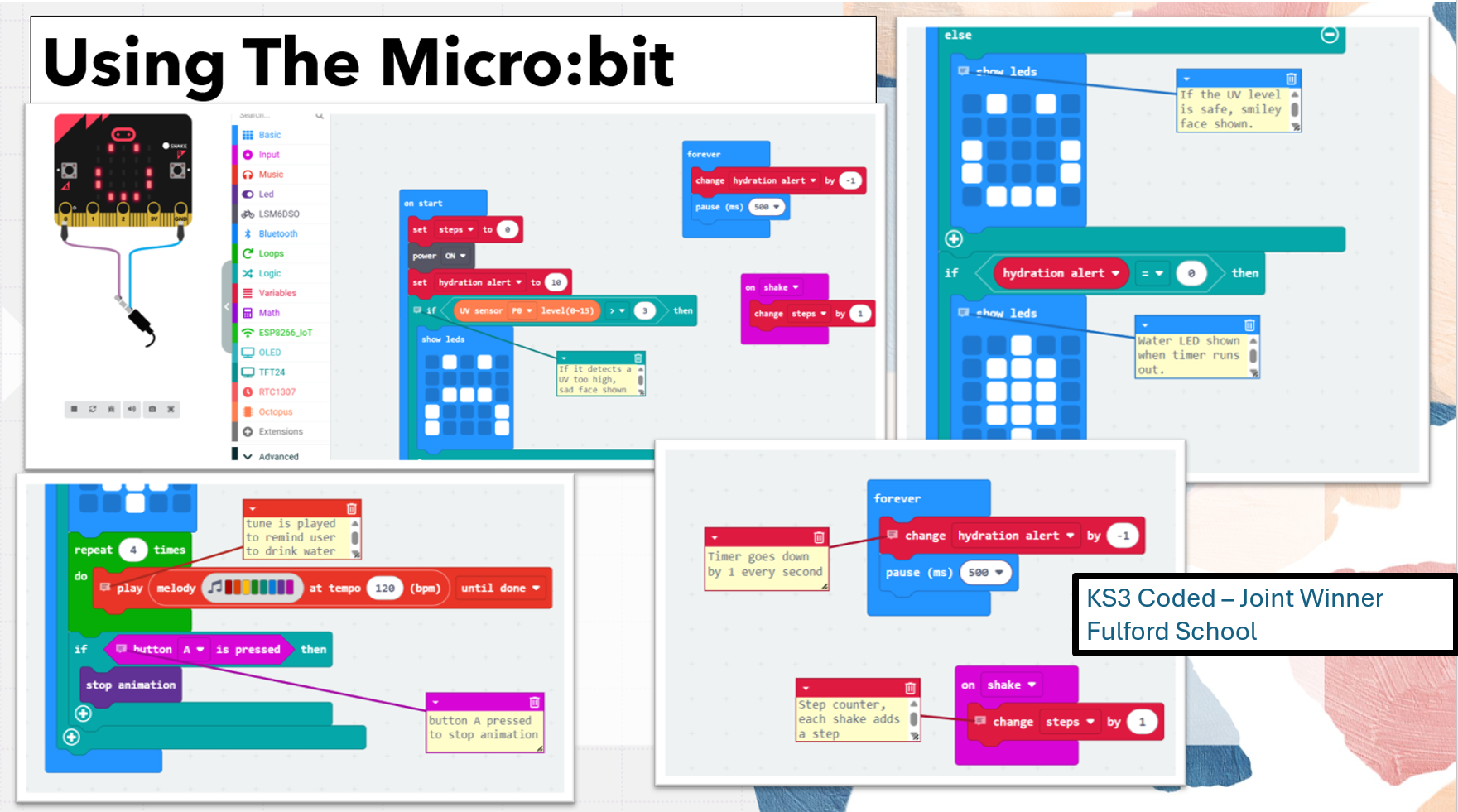
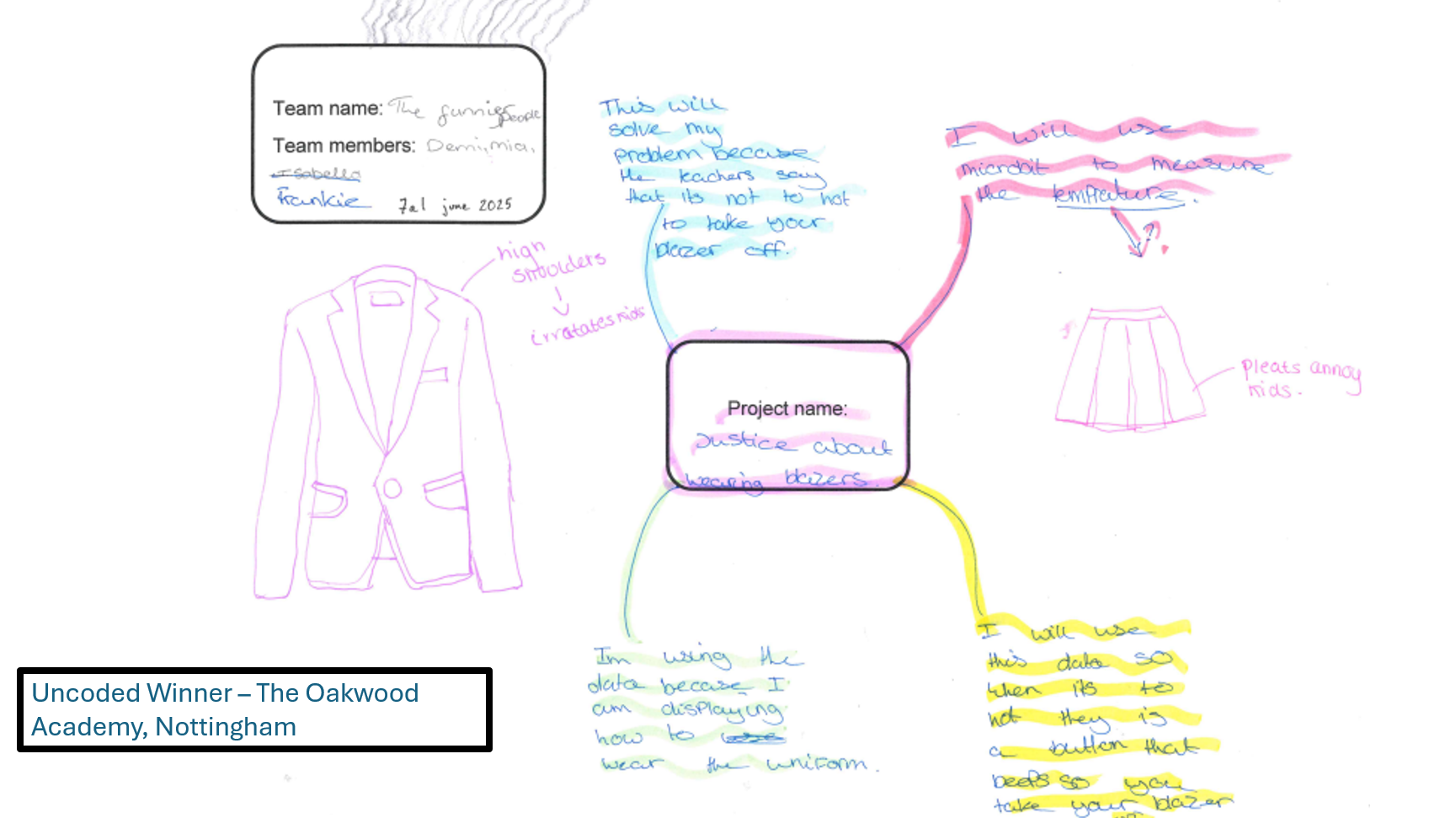
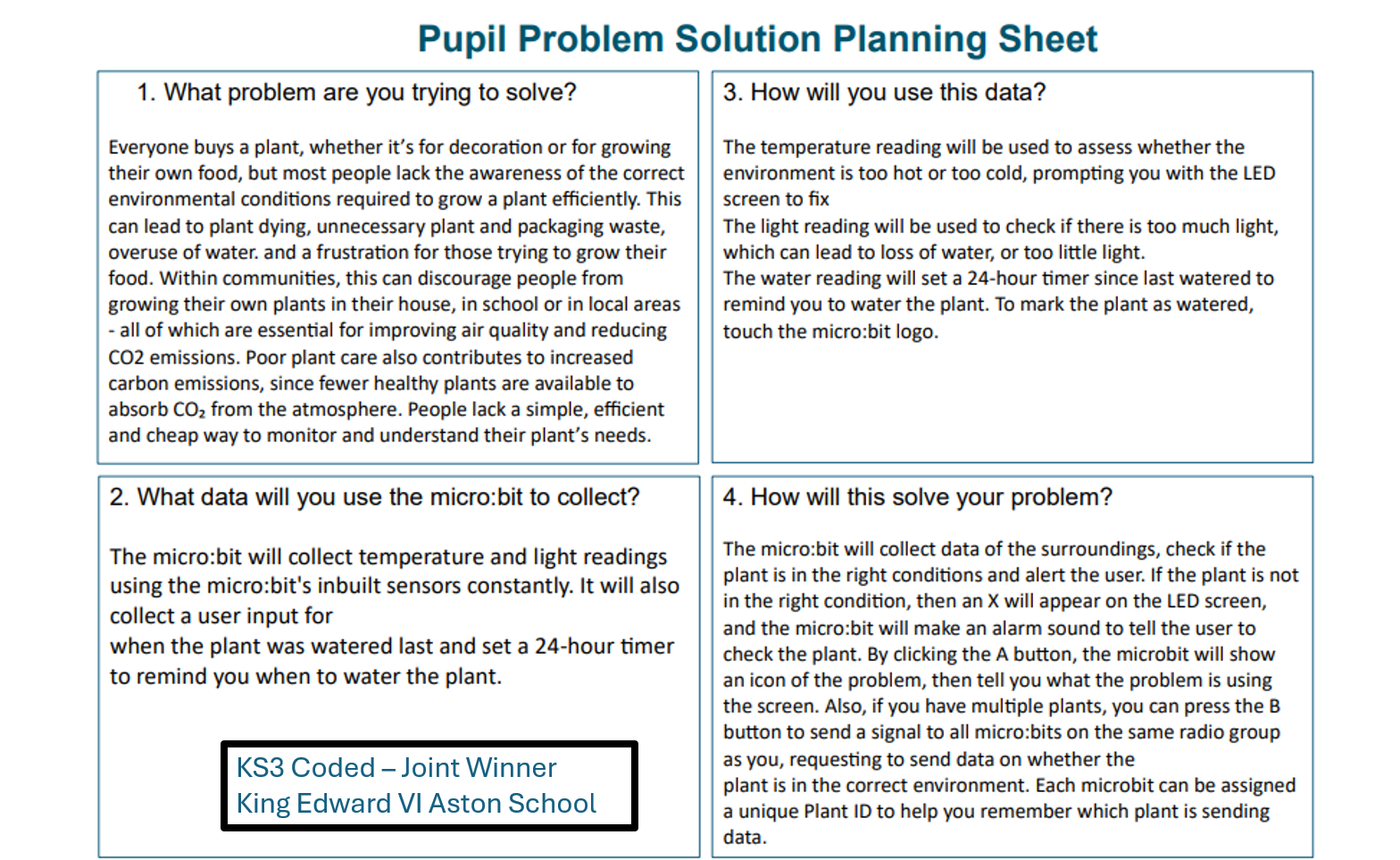
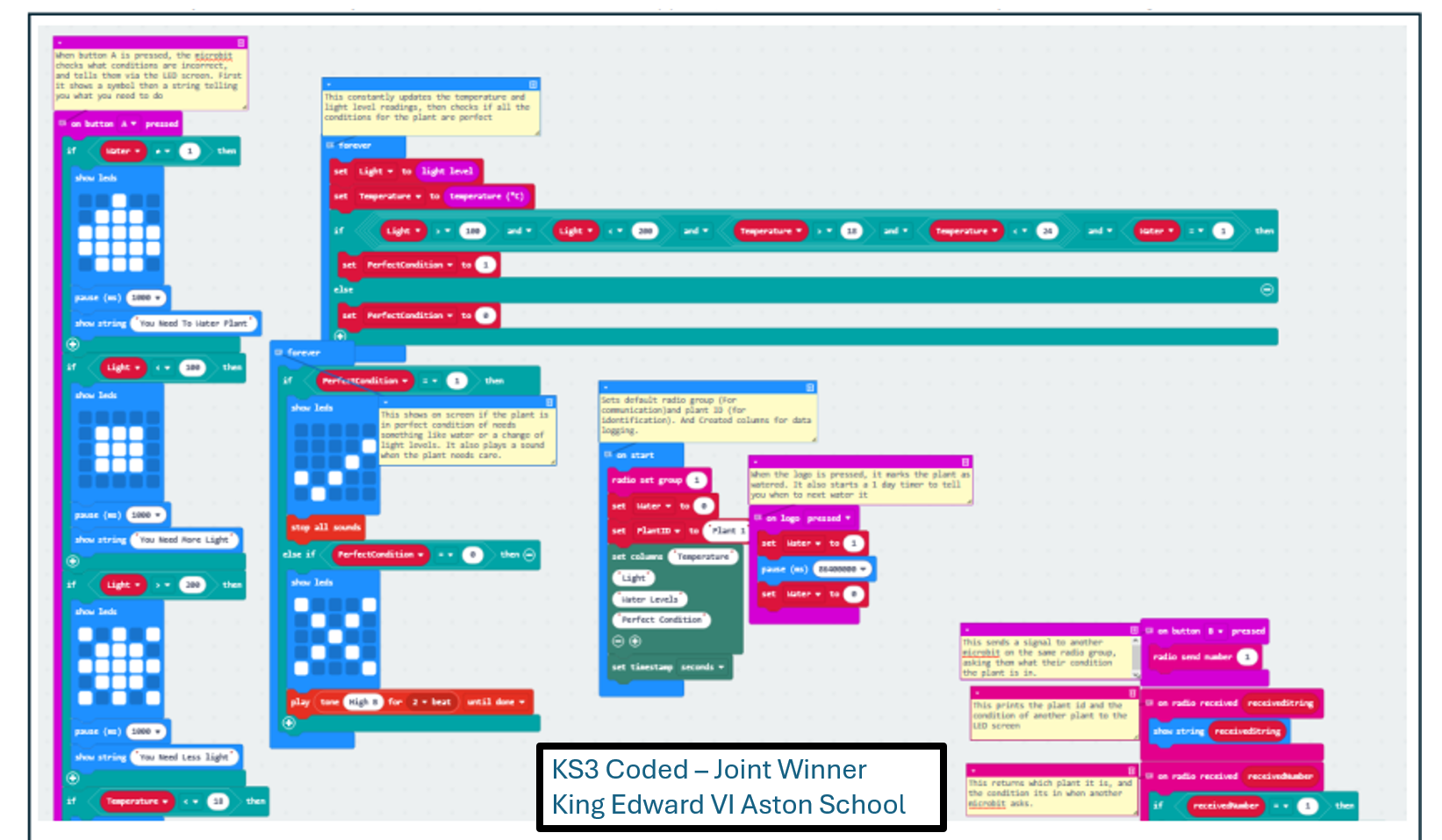
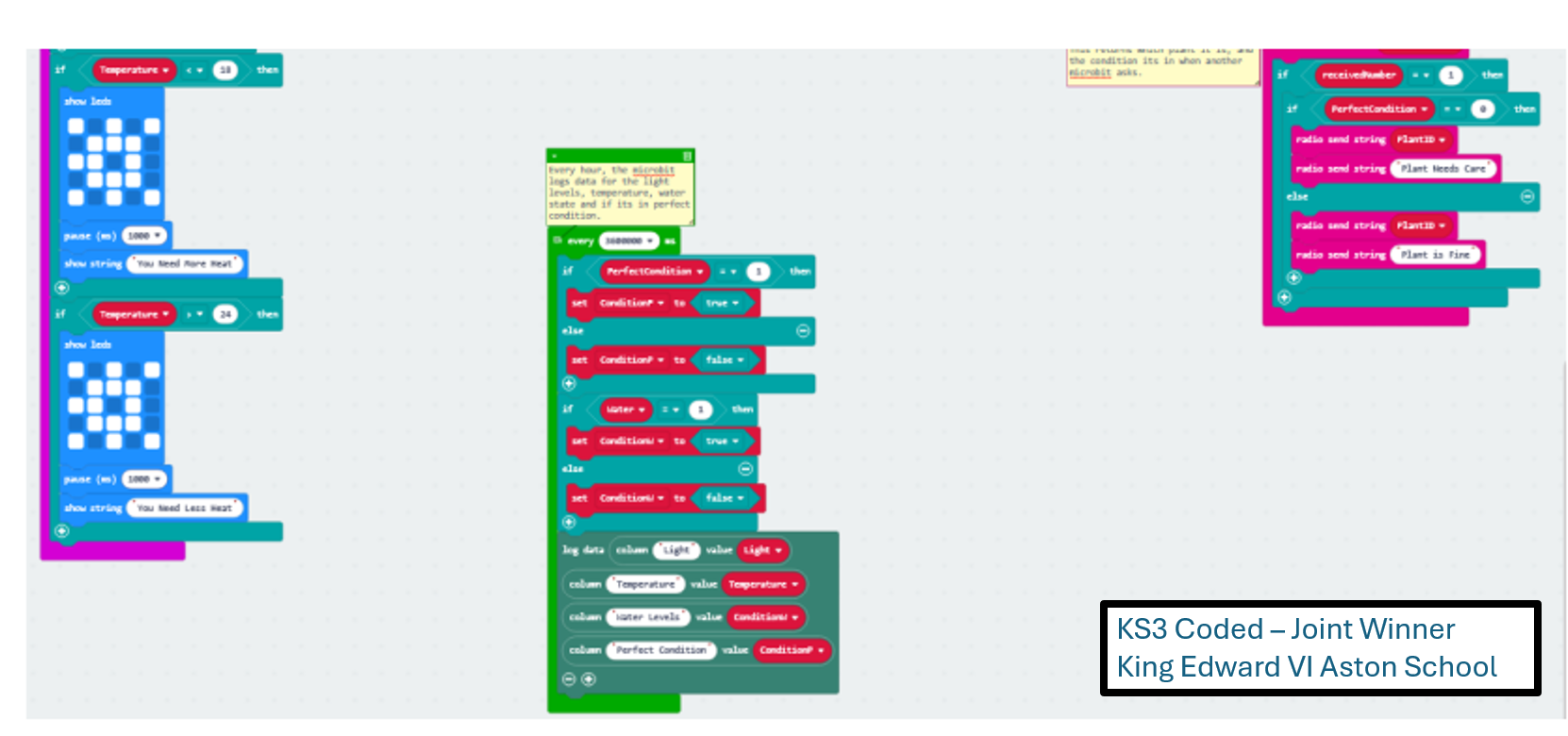
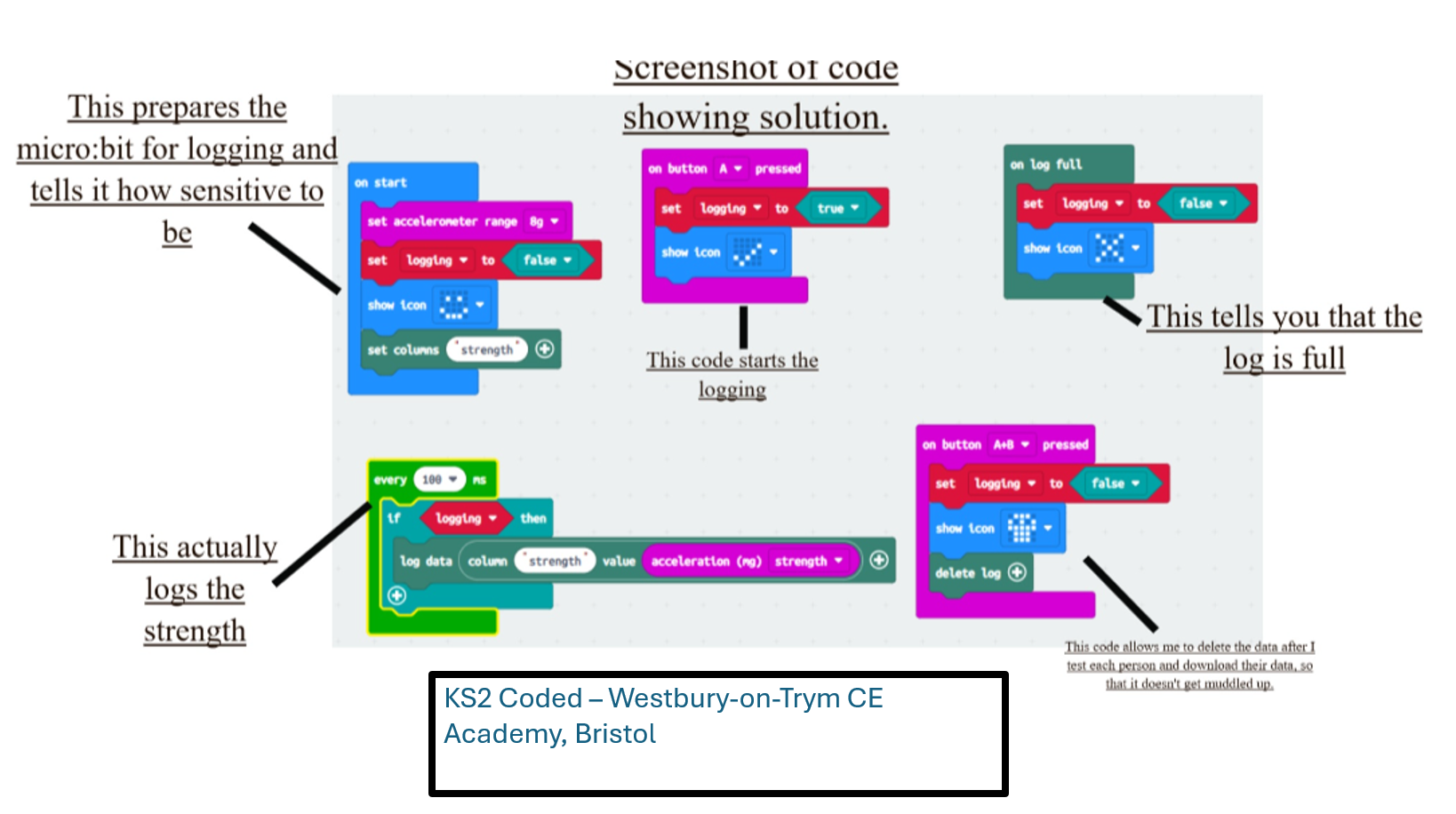
Empowering young problem-solvers with physical computing
This summer, we invited pupils aged 7-14 from across the UK to take part in our new CAS Physical Computing Competition – a celebration of creativity, coding, and real-world problem solving. The competition was designed to inspire learners to engage with physical computing in meaningful ways and to consider how technology can be harnessed to tackle environmental challenges both locally and globally.
Using the micro:bit, pupils were challenged to identify an environmental problem that mattered to them. This could be anything from a noisy school library to ocean litter or dying classroom plants. They then planned how to use the micro:bit’s sensors to collect data, analysed what that data could tell them, and proposed innovative solutions to address their chosen problem.
The competition was open to two age groups, 7-11 and 11-14, with entries in each group split into coded and non-coded categories to ensure accessibility for all learners. Judging focused on the identification of the problem, effective use of micro:bit sensors, the practicality and creativity of the proposed solution, and the clarity of the planning and supporting materials submitted.
From tackling classroom challenges to proposing solutions for global issues, these pupils impressed our judges with their thoughtful projects and innovative ideas. Here are the winning entries from the 2025 CAS Physical Computing Competition.
Key Stage 2 Coded Winner: Westbury-on-Trym Church of England Academy
The judges chose this project because they were impressed with the problem the pupils chose to solve – finding out who could kick the football the hardest. They felt the project clearly demonstrated how data could be collected and used to provide a solution to the problem.
Key Stage 3 Coded Joint Winners: Fulford School & King Edward VI Aston School
The judges were unable to decide between these two entries and were pleased to announce them as joint winners.
They were impressed with the potential impact of the solution from Fulford School, which used the micro:bit as a form of low-cost wearable technology to combat the problem of dehydration for outdoor workers in countries experiencing extreme heat.
They were also impressed by the entry from King Edward VI Aston School, which monitored a range of conditions to ensure purchased plants can thrive in the correct environment. The judges particularly liked the way users could interact with the micro:bit within this project.
Non-Coded Winner: The Oakwood Academy
The judges admired how this project aimed to solve the long-standing debate among students about when blazers can be removed, through the use of a micro:bit to monitor temperature. They also celebrated non-coded entries as a way of allowing pupils to consider how technology can be harnessed to solve everyday problems.
Congratulations to all of our winners for their outstanding work. The judging panel also awarded Highly Commended certificates to the following schools for their impressive entries:
- Griffin House Preparatory School
- Madley Brook Primary School
- Berkswick CE Primary School
- Durham High School
We asked some of the schools who entered the competition what they got out of the competition, their responses are below.
“It was a fantastic opportunity for them to think creatively about how they could use their coding skills to solve practical, and relevant problems.”
“We were especially proud of our Year 8 team, whose noise-monitoring system to support the school during exam season was shortlisted for their, creativity, problem-solving, and the iterative designs shown in the entry.”
"We love bringing our programming to life using physical computing. This competition was a great opportunity to bring our strong PE, Maths and Computing skills together solving a real world problem that was identified by our winning pupil.”
“The format of this competition was a fantastic opportunity to make our subject more relevant to young people's world. We are all very proud of the efforts students put into this competition and look forward to entering it again next year.”
If these inspiring entries have whet your appetite for running a similar competition in your own school, you can access all the resources produced for this competition through this link. It’s a fantastic way to engage your pupils with physical computing and encourage them to use technology to solve real-world problems.
To keep up to date with the computing competitions and challenges currently running, visit our dedicated competitions page here.






